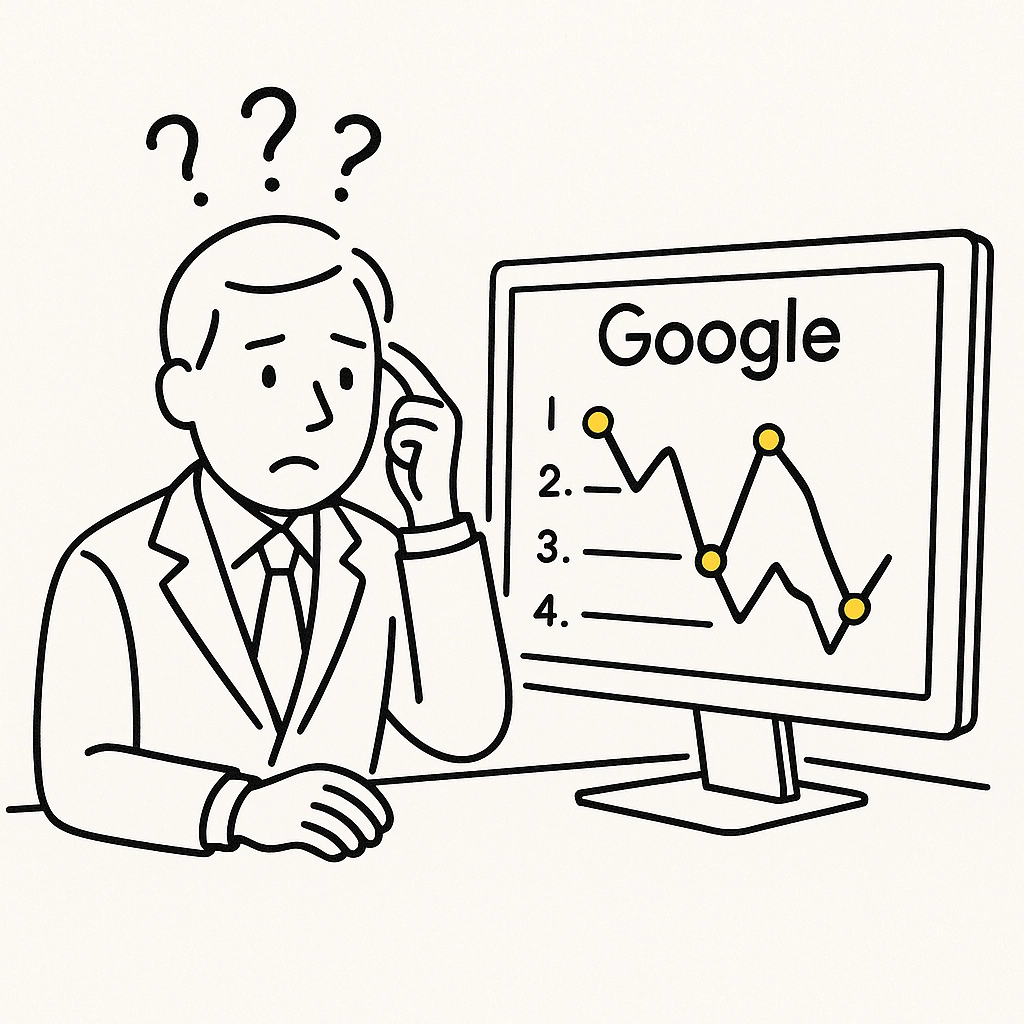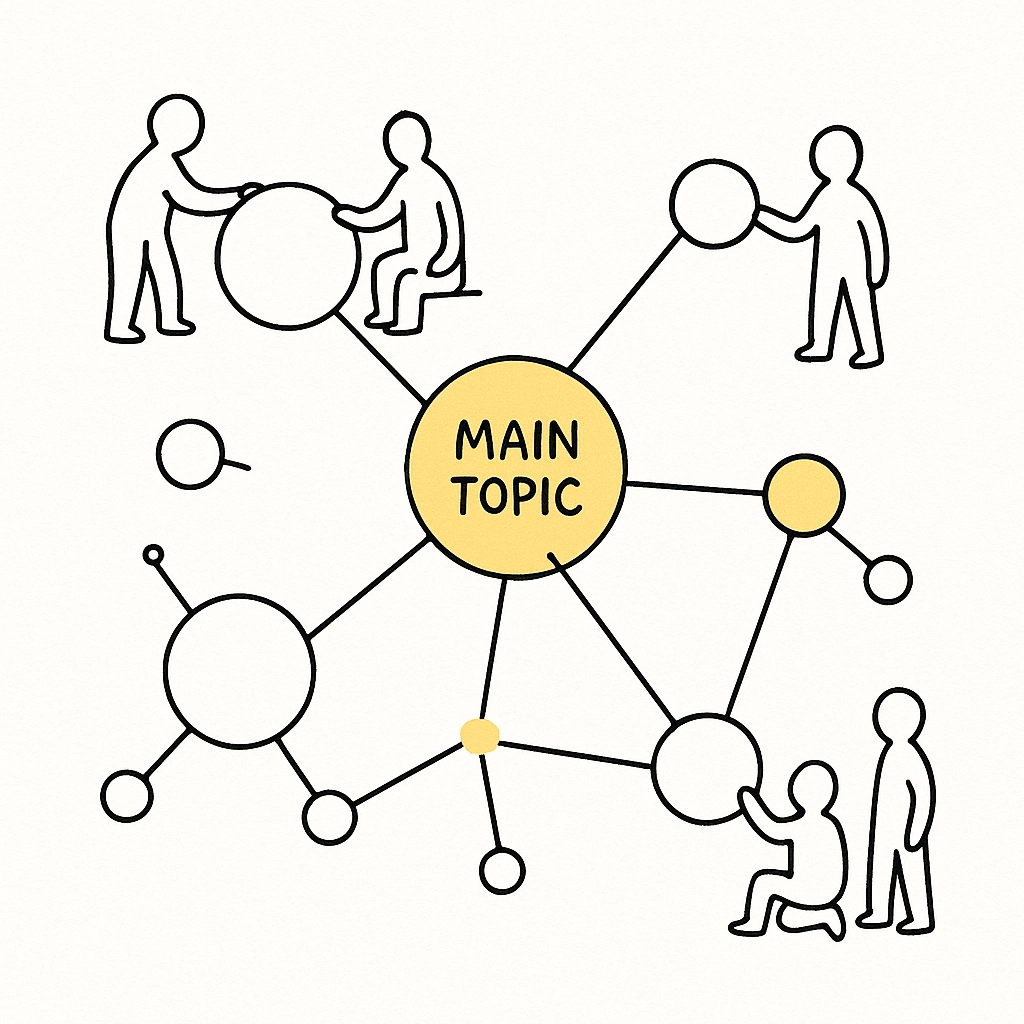Google Changed the Game (Again) – Here’s What Happened
Let’s cut to the chase: Google shook things up big time in 2025. While they roll out hundreds of small updates every year, two major algorithm changes have completely transformed how websites rank in search results. And if your business relies on Google for customers (whose doesn’t?), you need to understand what’s changed.
The first big update dropped in March, followed by an even bigger one in June. Together, these updates have reshuffled the search results deck, leaving some businesses wondering why their website traffic suddenly tanked while others are enjoying unexpected visibility boosts.
But don’t panic! At 141 Creative, we’ve been tracking these changes closely, and we’re breaking down exactly what they mean for your business – minus all the technical mumbo jumbo.

The Big Shifts: What Actually Changed
March 2025: The Warning Shot
The March Core Update (March 13-27) was basically Google’s way of saying, “We’re getting serious about quality.” This update caused massive ranking fluctuations, especially for websites in the health and finance sectors. Overnight, some well-established sites lost significant traffic while others gained ground.
What Google was really doing: Testing their improved ability to detect truly helpful content versus content that just looks good on the surface.
June 2025: The Game-Changer
The June Core Algorithm Update was the big one. This update focused on three main areas:
- Topical authority – Being genuinely knowledgeable about your subject
- E-E-A-T enhancement – That’s Experience, Expertise, Authoritativeness, and Trust (more on this in a bit)
- AI integration – Preparing search for more AI-powered features
While every industry felt the impact, news publishers, health websites, financial services, and e-commerce businesses experienced the most dramatic shifts.
What These Changes Mean For Your Business (In Plain English)
1. Content Mills Are Dead (Finally!)
Remember when you could pump out dozens of shallow blog posts stuffed with keywords and call it an “SEO strategy”? Those days are officially over. Google’s 2025 updates use advanced AI to understand content more like a human would.
This means:
- Content that provides genuine value wins
- Articles that actually solve problems rank higher
- In-depth coverage beats shallow overviews
As the digital marketing community is now saying, “average is the new bad.” With AI writing tools making mediocre content easy to produce, the bar for quality has been raised significantly.
2. Real Expertise Matters More Than Ever
The June update doubled down on E-E-A-T principles. In normal human language, this means Google is looking for signs that you actually know what you’re talking about.
For your business, this translates to:
- Showcasing your team’s credentials and experience
- Backing up claims with evidence and sources
- Creating content that demonstrates deep understanding
- Building a reputation for expertise in your specific niche
A local dentist who publishes thoughtful, detailed content about dental procedures they perform daily will now outrank a content farm writing superficially about “10 Ways to Whiten Your Teeth.”

3. User Satisfaction Is Now a Major Ranking Factor
Google increased the importance of user engagement metrics in 2025. In other words, they’re paying more attention to whether people actually like and use your website.
Key factors now include:
- How long people stay on your site
- Whether they click on multiple pages
- If they find what they’re looking for or bounce back to search
- How they interact with your site on mobile devices
This is a huge shift from just counting backlinks or measuring keyword density. Google now wants proof that users actually value your content.
4. Industry-Specific Impacts
Depending on your industry, you might have felt these updates differently:
For news publishers: Traffic dropped significantly as Google began featuring more content directly in search results, increasing “zero-click searches” from 56% to nearly 69%. If you’re in media, you need to focus on exclusive reporting and analysis that can’t be summarized in a snippet.
For health and wellness businesses: Medical content is under intense scrutiny. Only content created by legitimate experts with proper credentials is ranking well.
For e-commerce sites: Product reviews and comparison content face tougher standards. Generic product descriptions aren’t cutting it anymore – detailed, honest assessments from actual users are what rank.
For local businesses: Local search results fluctuated dramatically, with Google favoring businesses that demonstrate genuine community connections and authentic customer experiences.
How to Adapt Your SEO Strategy for 2025’s New Reality
Now for the part you’ve been waiting for – what should you actually DO about all this? Here are practical steps any business can take:
1. Audit Your Existing Content
Start by evaluating your current website content. Ask tough questions:
- Does this actually help our customers?
- Is this better than what competitors offer?
- Does this demonstrate our expertise?
- Would someone finish reading this and feel satisfied?
Be ruthless. It’s better to have 10 amazing pages than 100 mediocre ones.
2. Showcase Real Expertise
Google wants to see that real humans with relevant experience are behind your content:
- Add author bios with credentials to blog posts
- Include team pages with detailed backgrounds
- Share case studies of actual work you’ve done
- Get your experts to participate in relevant online discussions
At 141 Creative, we’ve seen clients’ rankings improve dramatically when they simply added proper attribution and expertise signals to existing content.

3. Focus on User Experience Metrics
Make sure your website is not just informative but actually pleasant to use:
- Speed up page loading times (under 2 seconds is the new standard)
- Simplify navigation so users find what they need quickly
- Create mobile-first designs (Google now primarily uses mobile versions for ranking)
- Structure content logically with clear headings and scannable text
4. Build Topic Authority Through Clusters
Instead of creating random blog posts, develop comprehensive content hubs around topics central to your business:
- Create in-depth pillar pages on major topics
- Link to related subtopic pages that explore specific angles
- Interlink content to show relationships between ideas
- Update and expand content regularly to remain current
For example, a pet store might create a comprehensive dog care hub with detailed guides on nutrition, training, health, and grooming, all interconnected to demonstrate deep expertise in pet care.
5. Optimize for Zero-Click and AI Features
With more searches now being answered directly in search results:
- Create content that directly answers common questions
- Use clear, structured data markup (Schema)
- Optimize for featured snippets with concise, valuable information
- Prepare for Google’s expanding AI Overviews by focusing on factual clarity
The Bottom Line: Quality Over Shortcuts
Google’s 2025 algorithm updates aren’t actually about penalizing websites – they’re about rewarding ones that truly deserve to rank. The websites seeing the biggest gains are those that were already focused on providing exceptional value rather than chasing algorithm tricks.
The good news? This levels the playing field. Small businesses with genuine expertise can now outrank larger competitors who have been coasting on outdated SEO tactics.
At 141 Creative, we’ve always believed that the best long-term SEO strategy is to create content that actually helps your audience. Google’s 2025 updates have finally made this the only strategy that works.
Ready to adapt your website to Google’s new reality? We’re here to help translate these algorithm changes into practical strategies for your specific business. Get in touch to learn how we can help your business not just survive but thrive in Google’s new search landscape.


0 Comments